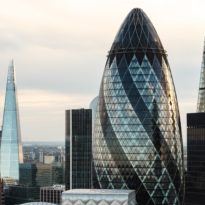ESG interpretation varies and perhaps should be centred around sustainability, suggests Ali Wilson, Techspert: Investment, The Verve Group.
As one of the hottest and most discussed topics in financial services, and indeed, the wider finance industry, an awful lot has already been said on the subject of ESG. However, the more material that lands in my inbox from the financial press, industry publications, fund managers and managed portfolio services, the more I question whether the material being distributed is truly reflective of what ESG is actually all about. Of course, it’s not just me, and many others in the industry have highlighted their own concerns regarding ‘greenwashing’.
First of all, the imagery and marketing around ESG products largely concerns the environment and green energy. Flick through any MPS brochure, and you will likely find a medley of shades of green, leaves, windfarms and solar panels. There is rarely any mention of the social and corporate governance standards to which the constituent firms are held to, and arguably these are the two most important factors, at least for short to medium term returns and the potential impacts on client portfolios. Yet, you will likely find plenty of information on how many estimated tonnes of CO2 are emitted by constituent firms in a very blinkered and obviously marketing-driven sales strategy, as CO2 emissions and environmental damage dominate much of the non-financial press and provoke more of a reaction amongst the general public.
This seems to have carried over to much of the material in the financial press too, and in turn, has been incorporated into ESG discussions in the financial advice industry.
In my position, I get to peek under the hood at what the financial advisers are doing regarding their investment strategies in order to assist in developing their centralised investment propositions. One matter of concern of mine that crops up fairly regularly is the blurred line between advisers wishing to recommend an ‘ethical’ strategy and believing that having a range of ESG funds in their CIP will have their backs covered in terms of their ethical obligations. This is fundamentally not the case.
ESG integration can be achieved in a number of ways by fund managers. The most traditional way involves negative screening where fund managers will exclude certain companies or sectors from the fund and is historically the preserve of fund ranges tailored to religious investors. The issue here is where do you draw the line? Take tobacco, for example. Do you only exclude the large multi-nationals responsible for the manufacture of tobacco products? What about the retailers that continue to sell them? What about firms that include equipment used to smoke tobacco in their inventory?
Fund managers can also integrate ESG through ‘best in class’, which you could rephrase to ‘best of a bad bunch’ when it comes to selecting companies for the fund. This means that the least polluting oil giant may still be allowed to be incorporated into the fund, or manufacturers in emerging markets with the least number of on-the-job deaths; admirable maybe, but far from what could be considered ethical.
In summary, ESG does not to equate to ethical investing or sustainability in an environmental sense. Instead, they should be considered in terms of sustainable returns. In turn, these sustainable returns are achieved through reducing (NOT eliminating) risk from Environmental, Social and Governance factors. To throw in another analogy, someone who eats meat for their main meal 7 days a week represents a non-ESG fund: very tasty and indulgent, but perhaps not the best for your health, the environment or the animals. Someone who is a strict vegan represents an ethical strategy; very healthy and sustainable but, outside of the most impassioned vegans, the food could be considered lacklustre. ESG investing represents a half-way house; or the person who might decide to eat meat for 5 days a week with the intention of eating meat on just 3 days a week by next year, and only 1 day a week by 2025. Not ethical, but much more sustainable!


































